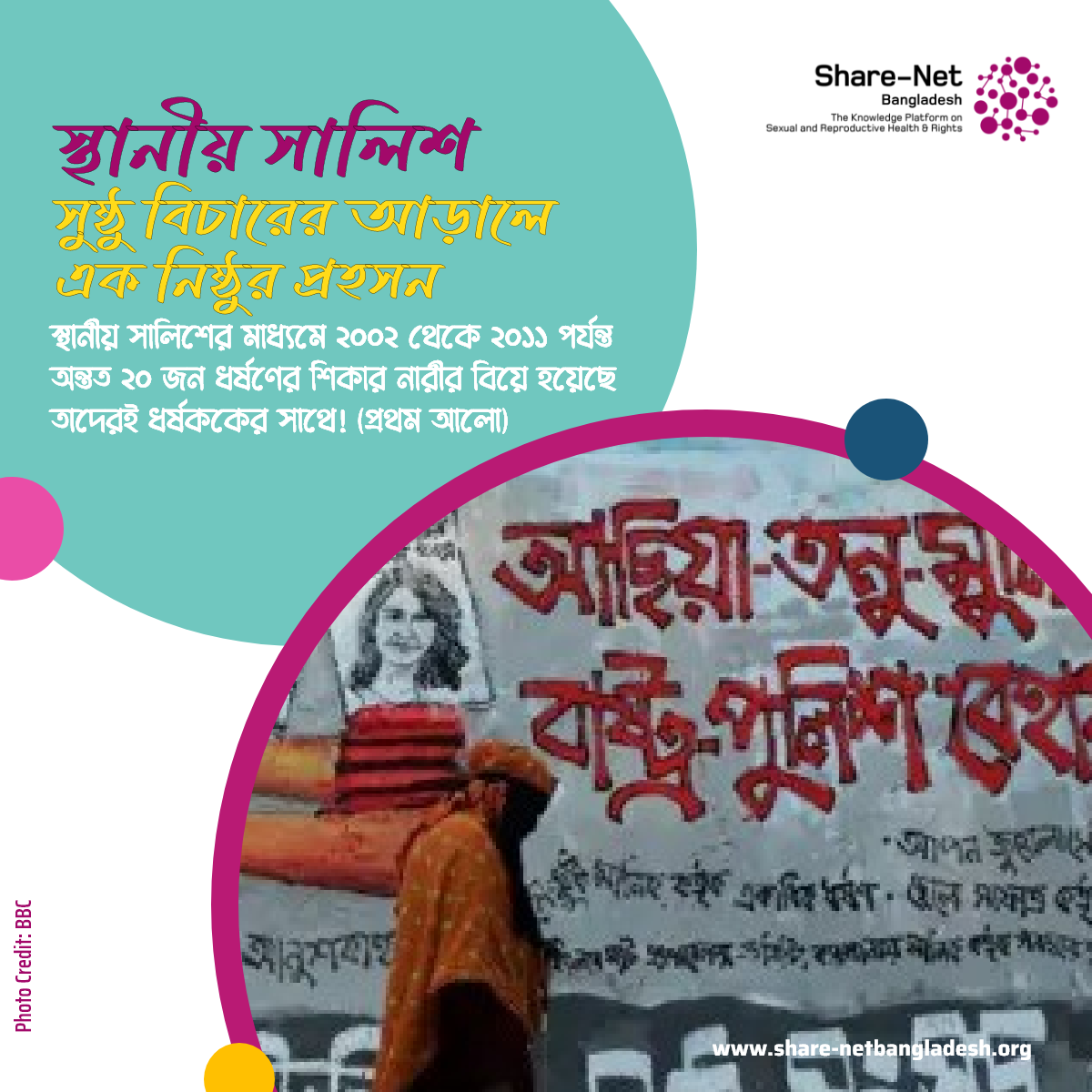Marrying Rape Survivors to Their Rapists: An Extreme Example of Injustice In the Name of “Settlement”
Between 2002 and 2011, at least 20 rape survivors were reportedly forced to marry their accused rapists, a grim pattern documented by Prothom Alo. Of those 20 forced marriages, 11 ended due to abuse, divorce or death threats—only one resulted in ongoing violence, and the outcomes of the remaining eight remain unknown.
Again during the past four years, Prothom Alo interviewed eight survivors and their families, revealing none of these marriages provided stability. In some cases, victims found themselves abandoned, isolated, or killed after the coerced union.
The horrifying trend: Marriage as impunity
Despite rape under the Women and Children Repression Prevention Act being a non-compoundable criminal offense, social forces push for these coerced marriages. Families, village arbitrators, and even magistrates sometimes enforce marriage “to preserve dignity” and avoid court proceedings. This effectively allows rapists legal and social forgiveness, punishing survivors instead.
A survivor’s tragic story from Sylhet in 2023 underscores this: a rape-induced pregnancy led to a forced marriage; instead of safety, she endured beatings, forced abortion, abandonment—and had to flee to protect her child.
Scaling the problem: Recent data
- In 2024 alone, 17,571 cases of violence against women and children were filed; 4,332 were rape cases—making up 34% of total VAW incidents.
- From January to October 2024, Bangladesh Mahila Parishad documented 544 rapes, including 150 gang-rapes, with 78 victims killed after rape.
- The 2024 Violence Against Women Survey revealed 70% of women experienced IPV in their lifetime, 41% in the past year; 54% had faced physical or sexual violence from husbands.
- Alarmingly, 64% of survivors never disclosed their abuse to anyone.
Why this matters for SRHR and justice
Sexual and reproductive health and rights (SRHR) depend on bodily autonomy, dignity, and freedom from violence. Forced marriage to perpetrators obliterates these rights:
- Physical safety is replaced by ongoing threat and control.
- Reproductive rights are violated—forced pregnancies, coerced abortions, or denied maternal care become common.
- Legal justice is blocked, as formal trials are forgone in favor of enforced “honor resolution.”
A call for action
To break this cycle of impunity, Bangladesh must enforce its own law:
- Rape must be treated strictly under non-compoundable sections—no marriages as settlements.
- Courts and police must refuse to formalise such marriages, even under pressure.
- Community education and empowerment are vital—to end stigma and inform families of survivors.
- Justice access must be improved: accelerate cases, protect survivors, use victim-friendly procedures, provide legal and psychological support.
Conclusion
Marrying survivors to their rapists is more than a moral failure—it is a structural injustice that deepens trauma, weakens reproductive rights, and allows perpetrators to roam free. The state, judiciary, and civil society must unite to stop this violation of SRHR and restore justice for survivors.
Source: The Daily Star



